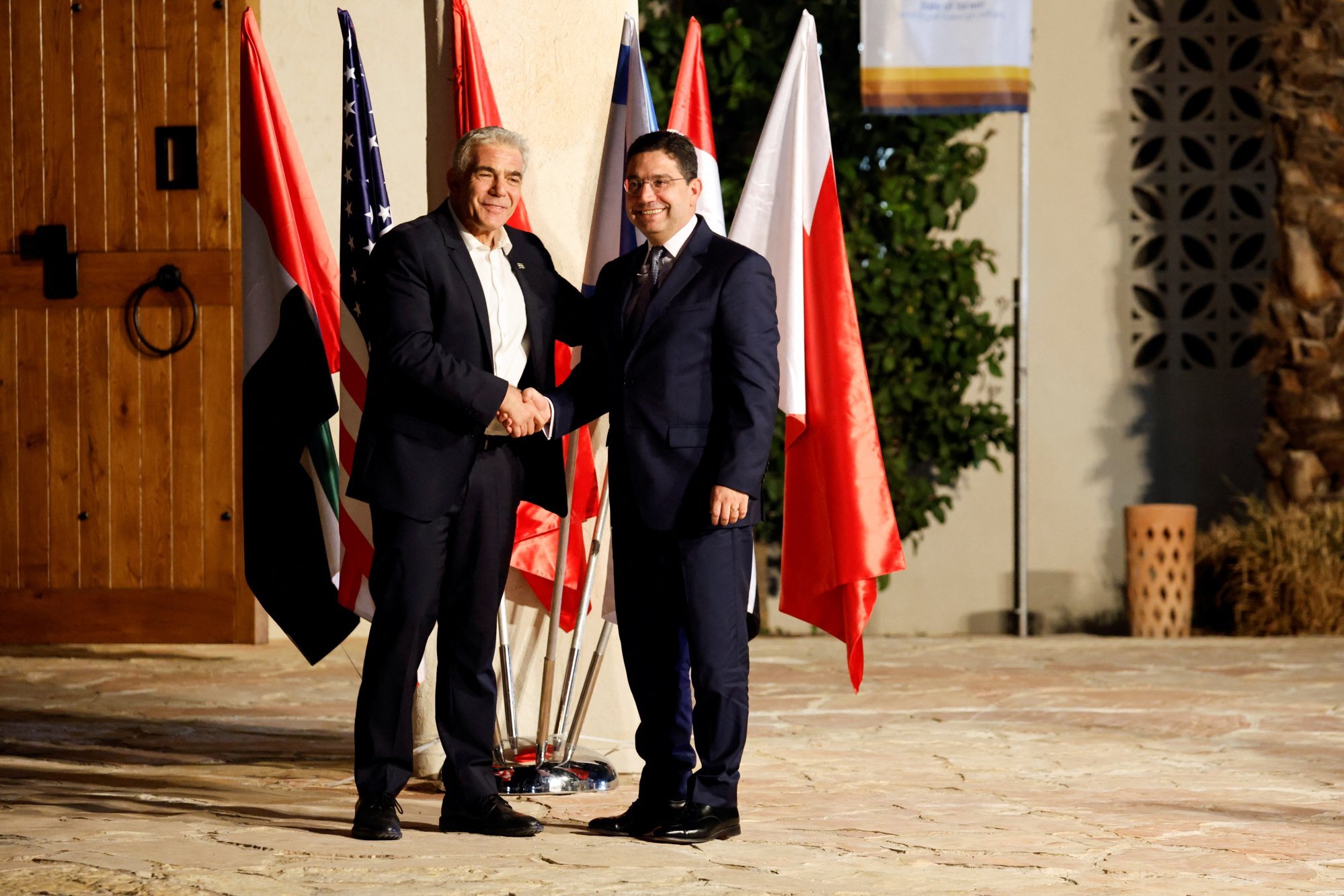
Antony Blinken in Israel to meet Arab ministers as Iran nuclear talks advance
- The Iran issue is likely to dominate the two-day gathering, which includes foreign ministers from three Arab states that normalised ties with Israel in 2020
- The US Secretary of State is also expected to press Arab allies to step up support for Ukraine to fend off Russia’s invasion
Israeli and Arab partners convened for a rare summit in Israel on Sunday attended by US Secretary of State Antony Blinken, who sought to reassure the US allies over Washington’s diplomacy with Iran.
The issue is likely to dominate the two-day gathering, which includes foreign ministers from three Arab states that normalised ties with Israel in 2020, even as peacemaking with the Palestinians remained stalled.
Blinken’s visit comes as some US allies in the region question the Biden administration’s commitment and brace for fallout from an Iranian nuclear deal and the Ukrainian crisis.

The nuclear talks had been close to an agreement several weeks ago until Russia made last-minute demands of the US, insisting that sanctions imposed on Moscow over its invasion of Ukraine should not affect its trade with Iran.
Restoring a 2015 nuclear deal “is the best way to put Iran’s nuclear programme back in to the box it was in”, Blinken said.
But whether that happens, “our commitment to the core principle of Iran never acquiring a nuclear weapon is unwavering,” he said alongside Israeli counterpart Yair Lapid in Jerusalem, before the summit got under way.
“The United States will continue to stand up to Iran when it threatens us or when it threatens our allies and partners,” Blinken said. Blinken is also expected to press Arab allies to step up support for Ukraine to fend off Russia’s invasion as several Gulf nations have so far stopped short of providing meaningful help.
After talks with Blinken, Israeli Prime Minister Naftali Bennett, who has cautioned that a nuclear deal with Iran would not be binding on Israel, said he hoped Washington “will hear the concerned voices from the region, Israel’s and others” .
Blinken tells China to condemn Russia’s invasion of Ukraine
Attending the Lapid-hosted summit in a desert hotel will be the United Arab Emirates, Bahrain and Morocco, which were part of the so-called Abraham Accords brokered by the Trump administration to normalise ties with Israel.
Egypt’s foreign minister, whose country on Saturday marked 43 years of peace with Israel, will also join the summit.
“Normalisation is becoming the new normal in the region,” Blinken said, adding that Washington hoped “to bring others in”.
But violence flared inside Israel, where two suspected Arab gunmen killed two people in the city of Hadera, 50km (30 miles) north of Tel Aviv, before they were shot dead, police said.

Before travelling to the summit venue, Blinken held talks in the occupied West Bank with Palestinian President Mahmoud Abbas. Blinken said Washington remained committed to a two-state solution of the Israeli-Palestinian conflict, but noted “the two sides are very far apart”.
On the subject of the war in Ukraine, Abbas criticised the West’s “double standards” that he said penalised Russia over its invasion of Ukraine while ignoring Israel’s “crimes” against the Palestinians.
“The current events in Europe have shown blatant double standards,” Abbas told Blinken.
Zelensky evokes Holocaust as he calls on Israel to stand against Russia
“Despite the crimes of the Israeli occupation that amounted to ethnic cleansing and racial discrimination... we find no one who is holding Israel responsible for behaving as a state above the law,” he said.
The venue for the foreign ministers’ meeting is Sde Boker, where Israel’s founding father and first prime minister, David Ben-Gurion, retired and is buried. The remote Negev desert farm collective has long been a symbol of Israeli innovation.
Sde Boker may also have provided an uncontroversial alternative to Jerusalem, which Israel considers its capital – a status not recognised by most countries in the absence of a resolution to Palestinian claims on the city.


.png?itok=arIb17P0)